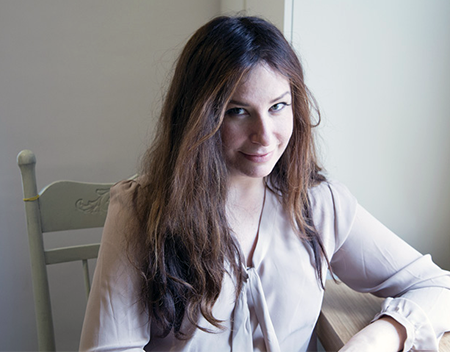 It has been a very good year, professionally speaking, for poet, essayist and Shocker alumna Anne Boyer ’97.
It has been a very good year, professionally speaking, for poet, essayist and Shocker alumna Anne Boyer ’97.
In March, Boyer, who has more than once been described as a “political thinker,” was named the 2018 Whiting Award winner in nonfiction/poetry by the Whiting Foundation, an organization that has been encouraging creative writing since 1985. Each year, the foundation gives out 10 awards to emerging writers in fiction, nonfiction, poetry, and drama – and each of the awards comes with $50,000.
Boyer’s Whiting Award came on the heels of another major literary prize, the inaugural $40,000 Cy Twombly Award for Poetry. Named after the American painter, sculpture and photographer whose visual art was often inspired by the works of such poets as Stéphane Mallarmé, Rainer Maria Rilke and John Keats, this award was presented to Boyer in January by the Foundation for Contemporary Arts, an organization founded by visual artist Jasper Johns and composer John Cage in the 1960s.
Both honors speak to the intellectual power and freshness of Boyer’s experimental work, which often takes as literary subjects the less explored thoughts and feelings that tangle around issues of gender, class, labor and illness. She says she chooses to write about such things – what she calls “inadmissable information” – because “there are problems to be solved.” Speaking specifically about her Garments Against Women (Ahsahta Press, 2015), the New York Times praised her work as “a book of poetry (or is it lyric prose? Essay? Must one decide?) that also turns away from poetry: It has no interest in meter or prosody per se – rather, it is interested in the measuring of thought and feeling, in a slow amazing and amazed rendering of the negative space of official life.”
In addition to Garments, which spent four months as the Small Press Distribution No. 1 best seller in poetry and won the Community of Literary Magazines and Presses’ 2016 Firecracker Award, her books include The Romance of Happy Workers (Coffee House Press, 2006), My Common Heart (Spooky Girlfriend Press, 2011), and A Handbook of Disappointed Fate (Ugly Duckling Presse, 2018).
Her memoir The Undying, a personal account of her battle with highly aggressive breast cancer, is forthcoming from Farrar, Straus and Giroux in 2019.
Recent essays of hers have appeared in Guernica, Fullstop, The New Inquiry, and Mute Magazine, and she holds the further distinction of having been voted “Best Writer” of 2014 in The Pitch’s annual “Best of Kansas City” issue.
Boyer, who calls Kansas City, Mo., home, is an assistant professor of creative writing at the Kansas City Art Institute, where she has taught experimental writing, aesthetics, gender studies and digital culture since 2007. Before joining the liberal arts faculty at KCAI, she taught creative writing and literature at Drake University in Des Moines, Iowa.
She was born in Topeka, Kan., and grew up in Salina, Kan. A voracious reader, she took to poetry early. “I’ve always just loved to read,” she told the KC Studio after winning her Whiting Award. “I was one of those kids who couldn’t get enough out of a book. So I knew I was going to be a writer of some sort, or an artist. I started out studying both, but poetry was cheaper.”
While working toward an MFA in creative writing at Wichita State, Boyer, who also holds a bachelor’s degree in English literature from Kansas State University, pulled double duty as assistant editor and poetry editor on the spring 1997 issue of Mikrokosmos, WSU’s literary magazine which has been published annually since 1958.
Interestingly enough, that particular issue of Mikrokosmos carries a dedication “to women scholars whose hard work and contributions to the academic life, then, as now, go unrecognized and unrewarded.” Perhaps, using as a case in point Boyer’s own prestigious accolades this year, the times, they are a-changing.
Or maybe we’re just starting to take their measure in new ways, with new methods – and through fresh eyes.
— Connie Kachel White





